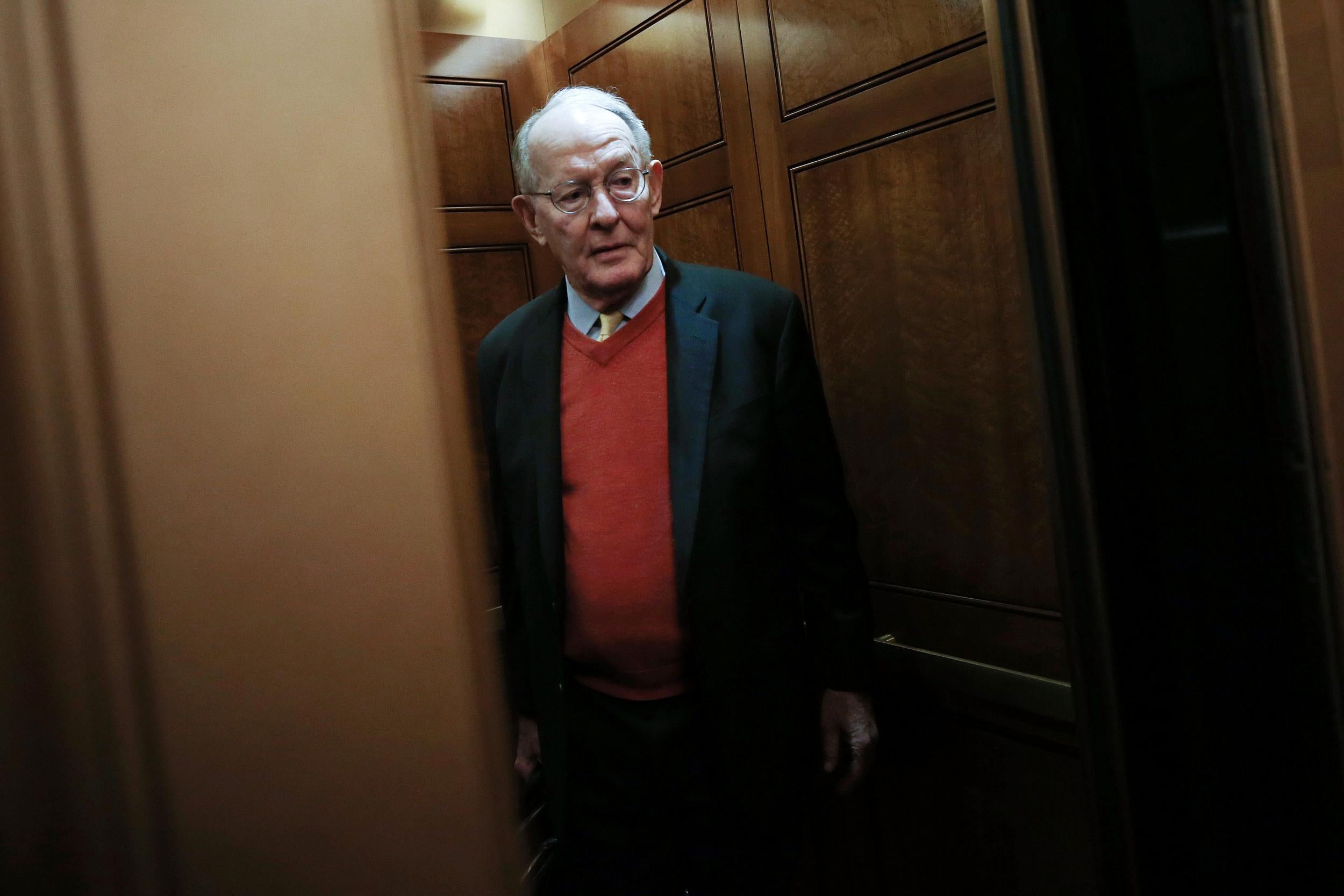'Doesn't add up to treason': Man who could decide Trump's fate explains reason to end impeachment trial
Republican Lamar Alexander, a key swing vote to decide whether to allow witnesses, says he won't support a motion – but says president's behaviour 'inappropriate and wrong'

Your support helps us to tell the story
From reproductive rights to climate change to Big Tech, The Independent is on the ground when the story is developing. Whether it's investigating the financials of Elon Musk's pro-Trump PAC or producing our latest documentary, 'The A Word', which shines a light on the American women fighting for reproductive rights, we know how important it is to parse out the facts from the messaging.
At such a critical moment in US history, we need reporters on the ground. Your donation allows us to keep sending journalists to speak to both sides of the story.
The Independent is trusted by Americans across the entire political spectrum. And unlike many other quality news outlets, we choose not to lock Americans out of our reporting and analysis with paywalls. We believe quality journalism should be available to everyone, paid for by those who can afford it.
Your support makes all the difference.A Republican Senator from Tennessee could extinguish Democrats' attempts to bring witnesses into Donald Trump's impeachment trial, effectively ending countless hours of debate and delivering the president his acquittal from the charges levelled against him.
Lamar Alexander, a key swing vote in the battle to introduce witnesses into the president's trial, said he believes it was "inappropriate and wrong" for president Mr Trump to pressure Ukraine to investigate Joe Biden's son to unearth potentially politically damaging information on the former vice president and 2020 presidential candidate — but he says "it didn't rise to the level of an impeachable offence".
His decision follows lengthy testimony and evidence finding in Congress before the president's impeachment in the House, and more than 70 hours of debate, questioning, and arguments in the Senate as the prosecution team and Mr Trump's legal defence presented their cases.
"I didn't need any more evidence to make my decision", he told reporters on Friday. "I thought about it, but I wanted to wait until the very last minute because around here, you never know what might happen. You might get a surprise during the question-and-answer period".
Mr Alexander — who does not plan to seek re-election this autumn — told CNN that "an error in judgment, an inappropriate and improper telephone call or action, doesn't add up to treason, bribery or high crimes and misdemeanours".
Friday's expected vote on whether to introduce witnesses into the proceedings — likely including former national security chief John Bolton, whose eyewitness account corroborates witness testimony that the president wanted to withhold Ukraine aid unless it opened the investigation at the urging of Rudy Giuliani and the president's other private interests — hinges on several Republican defectors from the party line.
Without those votes, the president, who is the third to endure an impeachment trial in US history, could be swiftly acquitted by his Senate allies as he approaches his third State of the Union address next week, held inside the body that voted to impeach him last month.
It would take four Republican votes to break the party's majority to agree to call witnesses. On Thursday, Maine's Susan Collins announced that she would support a motion. Utah's Mitt Romney has already indicated he would likely vote to bring up witnesses.
Alaska's Lisa Murkowski said she will not support a vote to bring witnesses, saying on Friday that "given the partisan nature of this impeachment from the very beginning and throughout, I have come to the conclusion that there will be no fair trial in the Senate."
If the vote came to a tie, Chief Justice John Roberts, who is presiding over the trial, could break it – although observers say he may choose not to make a casting vote.
Meanwhile, Senate Minority Leader Chuck Schumer suggested Democrats had a plan to press the trial into next week to delay Republicans' sought-after acquittal.
Mr Alexander filled the seat held by longtime Republican Senator Fred Thompson in 2002.
Previously, he served as Tennessee's governor for nearly a decade, and he was appointed as US Secretary of Education under President George HW Bush in the early 1990s.
Once a top choice for the party's Minority Whip, his name has frequently surfaced as a candidate for key party leadership positions.
In 2018, Mr Alexander announced he would not seek re-election in 2020.
Late on Thursday, Mr Alexander called the impeachment a "shallow, hurried and wholly partisan" effort that would "rip the country apart, pouring gasoline on the fire of cultural divisions that already exist".
He said it would set a precedent to allow "perpetual impeachment" in presidencies to follow.
But he didn't dispute that what Mr Trump did was wrong, saying that the case against him was "proved".
"The question is whether you apply capital punishment to every offence", he said on Friday. "In this case, I think the answer is no. Let the people make that decision."
Join our commenting forum
Join thought-provoking conversations, follow other Independent readers and see their replies
Comments